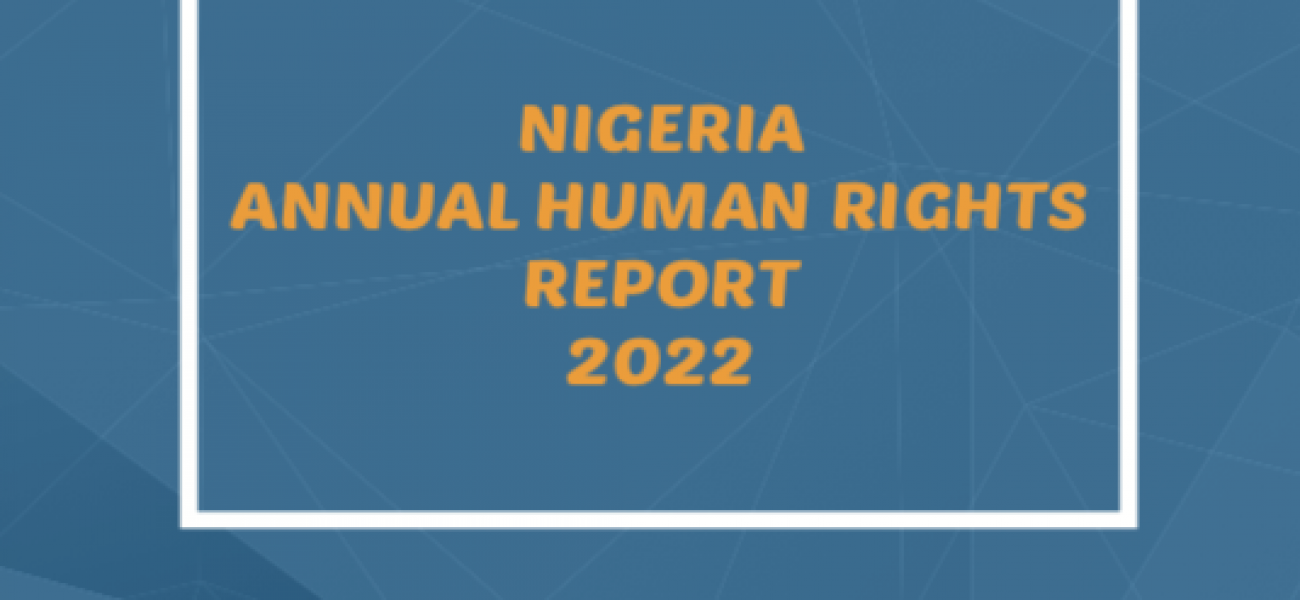This publication assesses Nigeria’s efforts towards meeting the human rights provisions of the Constitution, as well as those required by the country’s international commitments. The report uses a thematic approach to review issues related to human rights violations in Nigeria in 2022. The first set are those that directly impact on personal freedoms, such as the right to life, respect for the dignity of the human person, guarantee of personal liberty and the right to a private and family life. The next set considers matters related to the administration of the justice system and the application of the principle of fair hearing. This involves examining the conduct of the security agencies and all those involved with managing the criminal justice system. After this, there is a look at how issues of freedom of expression and belief fared during the period under consideration. These cover issues such as freedom of the press, freedom of thought, conscience and religion. Consideration is also given to aspects of human rights that relate to the mobile and social nature of the human person.
Another key finding is that Nigeria is going through a period of great economic difficulty, which on its own has exacerbated current human rights concerns. With the current government on the verge of leaving office and general elections looming, the government is facing plunging revenues, increased borrowing and a foreign-exchange crisis that helps to feed the beast of inflation. This in turn has exacerbated social tensions, worsened insecurity and crime and helped intensify spreading communal conflicts.
As a compass, the Nigeria Annual Human Rights Report 2022 is showing that Nigeria still has a long way to go towards fulfilling its human rights obligations to the country’s citizens as articulated in the Constitution.

